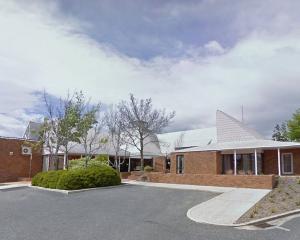The hearing, at Edgewater in Wanaka on Wednesday, was to consider a consent application made by Bruce Ecroyd for a two-lot subdivision at Dublin Bay. The society was the only opposing submitter and had asked to be heard at the hearing, but then failed to appear.
The applicant's lawyer, Graeme Todd, estimated the cost to his client for the hearing to be convened was ''at least $10,000'', as it involved two independent commissioners, four Lakes Environmental staff, three people appearing for the applicant, a venue being booked and travel costs.
Mr Todd was looking into the possibility of recovering some or all of the costs from the society, for his client.
''I'm very upset about it. It's professionally rude, quite frankly, and discourteous, for a party not to advise another party of their intentions when they know what the consequences of that might have been,'' Mr Todd said.
''This is not environmental society bashing. I've always been ... the person who says that environmental societies have a role to play in the process, but they must act responsibly.''
The society had been contacted several times asking for confirmation it would appear at the hearing.
''We heard nothing from them and they, like ourselves, were given the planner's report two weeks before the hearing, which recommended approval.''
Mr Todd said the society had taken away the opportunity for the applicant to make an application to have the hearing cancelled, as they were entitled to do under the Resource Management Act.
''I'm confident, in the circumstances, given that everybody was recommending approval [of the consent], that that would have been granted.''
UCES president Julian Haworth said the society's no-show was a ''non issue'', as there was no requirement in the RMA for the society to attend and add to its submission.
''However, unless withdrawn, its submission remains live, must be considered and commissioners have the power to turn down an application solely on the basis of a written submission.''
Mr Haworth said in the society's experience over many years, a hearing would always be held for a publicly notified resource consent application if any public submissions had been received.
However, Mr Todd said that was ''totally incorrect''.
Lakes Environmental resource management services manager Brian Fitzpatrick confirmed the need for a hearing was assessed on a case by case basis, and it was possible Wednesday's hearing would have been cancelled if there had been prior confirmation no submitters would be appearing.
''Had he [Mr Haworth] advised that he didn't want to be heard then there would have been the chance for the commissioners to say `We can do this without a hearing','' Mr Fitzpatrick said.
Mr Haworth said there were no grounds for Mr Todd to expect the society to contribute to the cost of the hearing.
''There is no requirement under the Act for an applicant to spend lots of money on lawyers and expert witnesses. That is entirely up to them and nothing to do with the society.''












